24/7 VALENCIA: 1.Tell us about your days working as a baker for your family. What was a typical day like?
RAFA LAHUERTA YUFERA: I was brought up in a bakery. So, from an early age I helped with the baking. I did a little bit of everything, although not very well… it has to be said. In the family’s ranking of bakers, I came last. I didn’t have the gift. Being a good baker is not easy. The baker is an alchemist… someone who, just by being grounded, knows how the job will go that day. My grandparents, my uncles and my father were very good. I was not so good. At the age of 29, I quit. What I liked most was the solitude of the bakery, watching the sunrise through the window, the first coffee of the day. I was not really a baker, I was someone who took notes about the craft of making bread, one of the most beautiful, demanding and delicate of skills. I think that frustration of not having been good at the craft of my elders will always be with me. I imagine that is why I write… to compensate for that frustration.
2. What memories do you have of Valencia in the 1980s?
In the 80s, people still lived their lives without all the ‘theatrics’ we see now. I won’t say that everything was more authentic, but it’s clear that there was less posing. Globalization has made our customs more superficial and somewhat ridiculous too. We have become actors in a bad movie. I remember those ‘old school’ Valencian cafe-bar restaurants, being in traffic and buying the newspaper in the bakery rounds at dawn, going to the beach when ‘La Malvarrosa’ was wild, the fights with stones with the gypsies who lived in the ruins of C/ Clariano , the expeditions to the Rio Turia Gardens, the first “nights out” in the barrio del Carmen and the explosive atmosphere, like Fallas, at Mestalla during matches . The truth is that if I start to go over my memories from that time, I won’t be able to stop. I would imagine that my books ‘La balada del bar Torino’ and ‘Noruega’ come from there, from that Valencia that has already disappeared. It is inevitable to end up writing about that landscape. It is the background to my own life.
3. What is the concept of your book “NORUEGA”? Why does a book about Valencia have a Scandinavian country as its title?
It is a tribute to the salted fish store of the family of the narrator/protagonist of the novel. And by extension, to the old C/ Trench, which until recently was a street full of stores selling salted fish, preserves and spices. There are also more possible interpretations. The narrator’s sister signed her paintings with that name: Noruega. And there is one last reference that the reader can discover if they get to the final chapter of the book. There, I shall leave it…
4. Is Albert Sanchis Bermell a reflection of your own experiences and perceptions, living in Valencia?
As Rafa Lahuerta, I am a secondary character in the novel. I like to think of myself as the executor who aids the narrator’s memory and outlook, someone who gives me his memoirs so that I can do with them as I see fit. Publish them, burn them or keep them in a drawer. In the end, I have opted to give them a way out. Albert and I have lived parallel lives at some point, but very different at the same time. It is enough to get to the end of the novel to realize that. On the other hand, anyone who knows me a little understands. There are coincidences…but not so many.
5. How do you see the future of Valencia for its citizens?
With distance. The future is not my subject. I don’t have much faith in the future, I guess that’s why I write about the past.
6. Could you tell us something about the ‘Premi Lletraferit de Novel-la 2020’ award you received for your book, ‘Noruega’?
Well, it would never have occurred to me to submit my novel for any other award. ‘Drassana’ (publishers) were very good to me when they published ‘La Balada del bar Torino’ and I think I was obliged to write this novel in Valenciano and that they were the first to read it too. The prize is good if it serves to guarantee future editions. That’s the most important thing, that a project as necessary as Drassana’s is also made stronger by the success of the book.
7. Describe a typical week at the stationery shop, ‘Arturo Manuel Papelería’.
I like the work very much. It’s a nice routine. I have clients that have been coming for so many years that I almost consider them friends. The problem is that local commerce is in a very difficult time regarding the future. The new generations don’t really value what establishments like ours give to the city. It’s a bit sad but, in the end, there will only be Amazon and its army of zombies. I hope I die first.
Interview by Will McCarthy
Article copyright 24/7 Valencia
Link for ‘Noruega’ in Valenciano: https://www.drassana.net/product-page/noruega-rafa-lahuerta
‘Noruega’ is now also available in Spanish: https://www.drassana.net/
Related Post
This site uses Akismet to reduce spam. Learn how your comment data is processed.


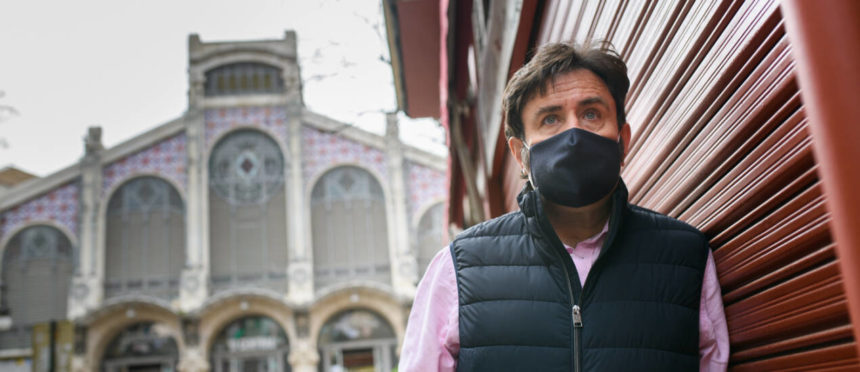
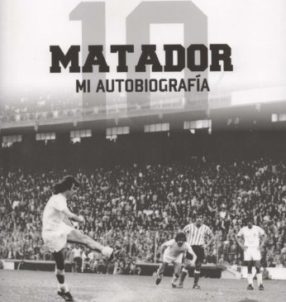
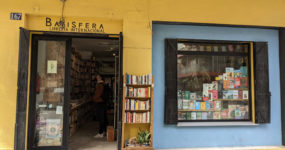

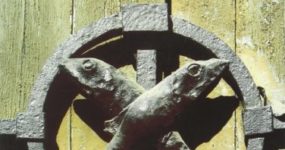
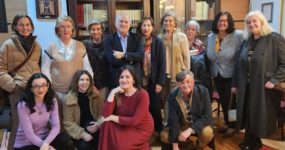

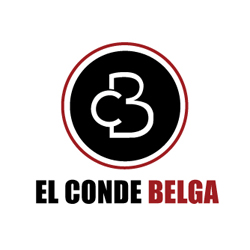













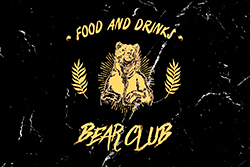

Leave a comment